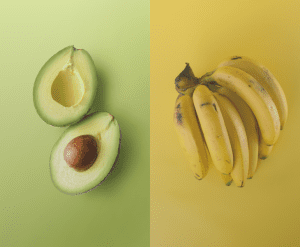Urinary tract infections (UTIs) are not only painful but can also disrupt our daily lives. The constant discomfort and frequent trips to the restroom can be a real nuisance.
However, nature often has remedies up its sleeve, and cranberry juice is one such natural hero when it comes to UTIs.
In this blog post, we’ll explore the benefits of cranberry juice for UTIs and how you can harness its power to alleviate your symptoms.

Understanding UTIs
Before we dive into the world of cranberry juice as a remedy, it’s crucial to understand what a UTI is and why they occur.
Urinary tract infections are commonly caused by bacteria, most often Escherichia coli (E. coli), making their way into the urinary system.
These bacteria adhere to the walls of the urinary tract, causing infection and irritation.
The result is often painful urination, a persistent urge to use the restroom, and sometimes even fever or chills.
Cranberry Juice: A Natural Ally
Cranberry juice has been used for generations as a home remedy for UTIs. The secret to its effectiveness lies in its unique compounds, which prevent bacteria from adhering to the urinary tract walls.
These compounds, known as proanthocyanidins, make it more difficult for bacteria to latch onto the lining of the urinary tract, limiting their ability to multiply and cause infection.
Choosing the Right Cranberry Product
To harness the benefits of cranberry juice for UTIs, it’s essential to make the right choices. Here are some tips to help you maximize its effectiveness:
Opt for Unsweetened Cranberry Juice
When purchasing cranberry juice, go for the unsweetened variety. Sugar can feed the bacteria you’re trying to fight, so it’s best to avoid sugary versions. You can always dilute it with water if the taste is too strong for your liking.
Cranberry Supplements
If you find it challenging to drink cranberry juice regularly, cranberry supplements are a viable alternative.
These capsules or tablets often contain concentrated cranberry extracts and can be an effective way to ensure you get the necessary compounds without consuming excess sugars.
Consistency is Key
To see the best results, it’s important to be consistent with your cranberry intake.
Drinking a glass of unsweetened cranberry juice daily or taking cranberry supplements according to the recommended dosage is crucial in the battle against UTIs.

The Science Behind Cranberry Juice
Cranberry juice’s efficacy in preventing and alleviating UTIs has been supported by various scientific studies.
While the results may not be universally consistent, many studies suggest that cranberry products can reduce the risk of UTIs, particularly in individuals who are prone to recurrent infections.
It’s important to note that cranberry juice or supplements should not be used as a sole treatment for a diagnosed UTI.
If you suspect you have a UTI or have been diagnosed with one, consult a healthcare professional for appropriate treatment, which often includes antibiotics.
The Bottom Line
Cranberry juice has earned its reputation as a natural remedy for UTIs due to its ability to prevent bacteria from adhering to the walls of the urinary tract.
While it’s not a magic cure, regular consumption of unsweetened cranberry juice or cranberry supplements can help reduce the risk of UTIs, especially for those who are prone to these infections.
However, it’s essential to use cranberry products as a preventive measure and not as a replacement for medical treatment if you already have a UTI.
Remember to consult a healthcare professional for appropriate care and antibiotics if needed.
So, next time you feel that telltale discomfort, reach for a glass of cranberry juice, nature’s little helper in the battle against UTIs.
Disclaimer: The following information is provided solely for informational purposes and should not be considered professional advice or a substitute for professional consultation. While every effort has been made to ensure the accuracy and reliability of the information presented, we make no representations or warranties of any kind, express or implied, regarding the completeness, accuracy, reliability, suitability, or availability of the information provided. Any reliance you place on such details is strictly at your own risk.








